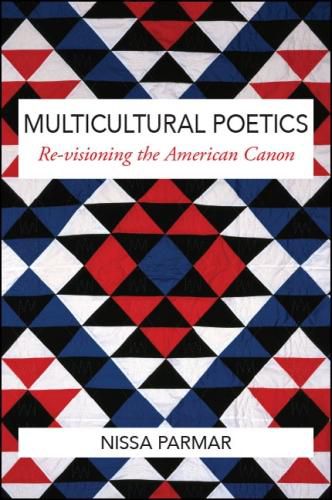Readings Newsletter
Become a Readings Member to make your shopping experience even easier.
Sign in or sign up for free!
You’re not far away from qualifying for FREE standard shipping within Australia
You’ve qualified for FREE standard shipping within Australia
The cart is loading…






Multicultural Poetics provides a new perspective on American poetry that will contribute to the evolution of contemporary critical practice. Nissa Parmar combines formalist analysis with cultural studies theory to trace a lineage of hybrid poetry from the American Renaissance to what Marilyn Chin deemed America’s multicultural renaissance, the blossoming of multicultural literature in the 1980s and 1990s. This re-visionary literary history begins by analyzing Whitman and Dickinson as postcolonial poets. This critical approach provides an alternative to the factionalism that has characterized twentieth-century American poetic history and continues to inform literary criticism in the twenty-first century. Parmar uses a multiethnic, multigender method that emphasizes the relationship between American poetic form and cultural development. This book provides a new approach by using hybridity as the critical paradigm for a study that groups multiethnic and emergent authors. It thereby combats literary ghettoization while revealing commonalities across American literatures and the cross-fertilization that has informed their development.
$9.00 standard shipping within Australia
FREE standard shipping within Australia for orders over $100.00
Express & International shipping calculated at checkout
Multicultural Poetics provides a new perspective on American poetry that will contribute to the evolution of contemporary critical practice. Nissa Parmar combines formalist analysis with cultural studies theory to trace a lineage of hybrid poetry from the American Renaissance to what Marilyn Chin deemed America’s multicultural renaissance, the blossoming of multicultural literature in the 1980s and 1990s. This re-visionary literary history begins by analyzing Whitman and Dickinson as postcolonial poets. This critical approach provides an alternative to the factionalism that has characterized twentieth-century American poetic history and continues to inform literary criticism in the twenty-first century. Parmar uses a multiethnic, multigender method that emphasizes the relationship between American poetic form and cultural development. This book provides a new approach by using hybridity as the critical paradigm for a study that groups multiethnic and emergent authors. It thereby combats literary ghettoization while revealing commonalities across American literatures and the cross-fertilization that has informed their development.